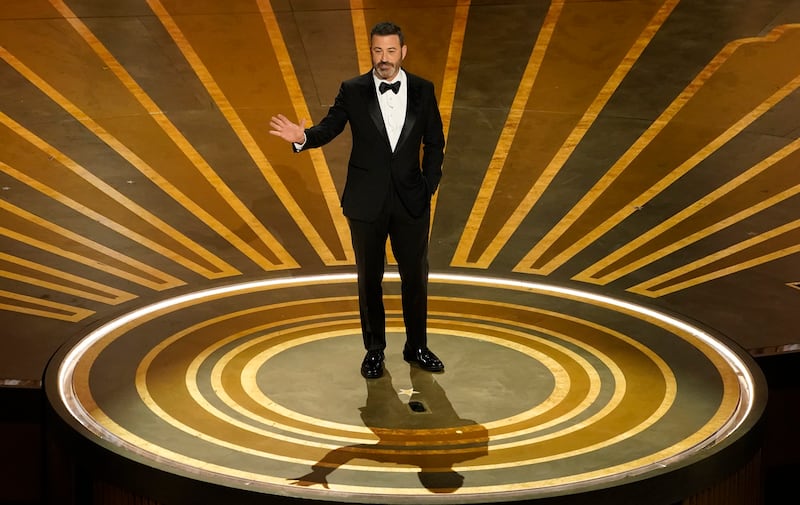Years ago, I wrote a weekly humor column — something I would advise any sane person against.
Humor is highly subjective. Not everyone laughs. Some get offended. The column ended through a mutual agreement with editors when the COVID-19 pandemic hit and, well, nothing seemed very funny for a while.
But while it lasted, I imposed only a few rules on myself. Don’t demean individuals needlessly, sacred things are never funny and for heaven’s sake, never joke about death or tragedy.
Jimmy Kimmel broke that last rule earlier this week with a joke that revolved around the shooting of Charlie Kirk. Now he is apparently out of a job. Comedy is a tough business.
But this isn’t a new thing.
Jack Paar wasn’t allowed to tell a tame bathroom joke on the air back in 1960, a decision that led him to walk off the show mid-broadcast in disgust. But Paar’s anger was directed at NBC censors, not the government.
A little history lesson
Kimmel has bigger foes in high places. That’s why history can provide a little perspective. Trump isn’t treading new ground here; he just might be leaving bigger footprints.
In the tumultuous ‘60s, President Lyndon B. Johnson called the president of CBS in the middle of the night, demanding that the Smothers Brothers, who had a popular television comedy show, stop making jokes about him. As the Washington Post recalled a few years ago, the feud continued into the Richard Nixon administration, which started an investigation into the brothers. The show was canceled three months into Nixon’s first term.
Even these weren’t the first examples of presidential pressure on the media. President Truman threatened to punch a critic who covered a concert given by his daughter, Margaret, a budding singer.
“There are few moments during her recital when one can relax and feel confident that she will make her goal, which is the end of the song,” the critic wrote.
I could cite more examples. The First Amendment notwithstanding, presidents have often exhibited thin skin when free speech is aimed at them.
But Truman’s threat seems downright endearing today. By contrast, it was chilling to hear the head of the FCC, Brendan Carr, on a podcast this week telling Disney, which owns the ABC network, “We can do this the easy way or the hard way.” Referring to Kimmel’s joke, he said, “These companies can find ways to take action on Kimmel or there is going to be additional work for the FCC ahead.”
The “joke” was actually misinformation about the political leanings of the Southern Utah man accused of killing Charlie Kirk. It was used as a set up to run a video of Donald Trump, who pivoted to the construction of the new White House ballroom, where one might have expected more discussion of Charlie Kirk.
ABC promptly “preempted” Kimmel indefinitely.
Abuse of power?
Government power should never be used so blatantly to punish speech, or even a lame joke. Yes, I understand this joke contained an inaccuracy. If the network asked Kimmel to apologize, or perhaps clarify, that would be appropriate. But leave government out of it. The First Amendment wasn’t written to protect happy talk that everyone thinks is nice. It was to expose all viewpoints, even jokes and cartoons, to the marketplace of ideas.
On a recent trip to Bangladesh, I encountered many people who were thankful that a new regime allowed them to openly criticize the government. They had paid a horrible price for trying to do so under an earlier regime.
That’s an all-too familiar problem with unchecked power, as this nation’s Founders knew.
Writing for Politico, law professor Aziz Huq said, “The Constitution doesn’t guarantee Kimmel a talk show, but it does guarantee that the government won’t quash his speech because of what he chooses to say.”
He suggested the former host has a “straightforward” road to a lawsuit for damages.
A lame joke
Frankly, I thought Kimmel’s joke was lame. He said political discourse “hit some new lows over the weekend with the MAGA gang desperately trying to characterize this kid who murdered Charlie Kirk as anything other than one of them and doing everything they can to score political points from it.”
From what we know, that is simply wrong. The accused killer, Tyler Robinson, was registered to vote but had not registered with any party. His mother reportedly said he had adopted left-leaning ideologies and supported pro-gay and trans-rights positions.
Carr called it a “concerted effort to lie to the American people.” I call it insensitive to a horrible tragedy.
The irony here is that traditional late-night programs are becoming a dying art. As the New York Times wrote recently, short video clips are beginning to dominate the landscape. Former hosts such as Conan O’Brien and even Jay Leno are doing podcasts and YouTube videos.
Why not let the market take its course?
LBJ’s letter
Finally, it’s worth noting that President Johnson, after he had left office, sent a conciliatory letter to the Smothers Brothers.
It said: “It is part of the price of leadership of this great and free nation to be the target of clever satirists. You have given the gift of laughter to our people. May we never grow so somber or self-important that we fail to appreciate the humor in our lives.”
It was a bit late, of course, but true.


